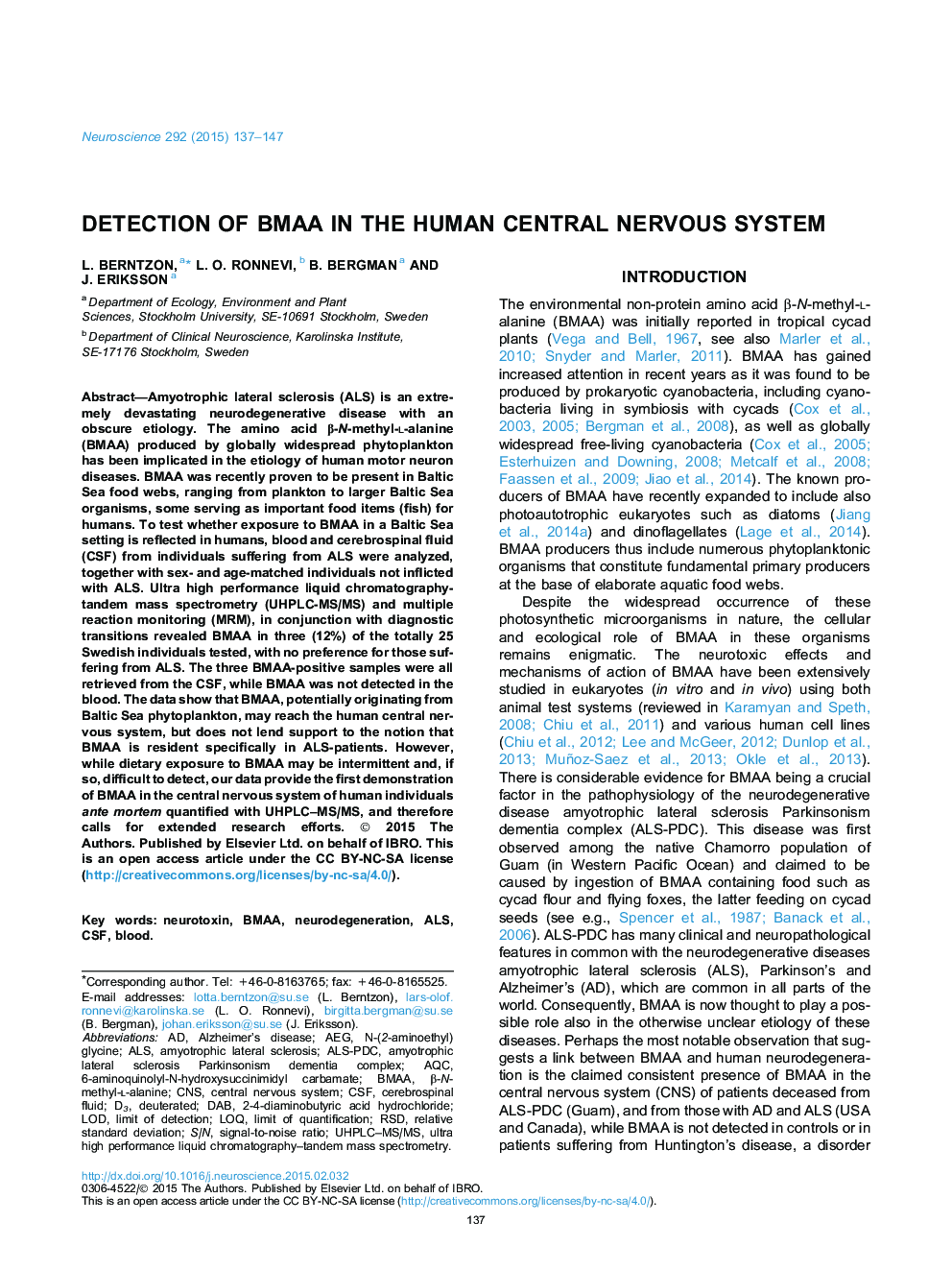| Article ID | Journal | Published Year | Pages | File Type |
|---|---|---|---|---|
| 6272591 | Neuroscience | 2015 | 11 Pages |
Abstract
Amyotrophic lateral sclerosis (ALS) is an extremely devastating neurodegenerative disease with an obscure etiology. The amino acid β-N-methyl-l-alanine (BMAA) produced by globally widespread phytoplankton has been implicated in the etiology of human motor neuron diseases. BMAA was recently proven to be present in Baltic Sea food webs, ranging from plankton to larger Baltic Sea organisms, some serving as important food items (fish) for humans. To test whether exposure to BMAA in a Baltic Sea setting is reflected in humans, blood and cerebrospinal fluid (CSF) from individuals suffering from ALS were analyzed, together with sex- and age-matched individuals not inflicted with ALS. Ultra high performance liquid chromatography-tandem mass spectrometry (UHPLC-MS/MS) and multiple reaction monitoring (MRM), in conjunction with diagnostic transitions revealed BMAA in three (12%) of the totally 25 Swedish individuals tested, with no preference for those suffering from ALS. The three BMAA-positive samples were all retrieved from the CSF, while BMAA was not detected in the blood. The data show that BMAA, potentially originating from Baltic Sea phytoplankton, may reach the human central nervous system, but does not lend support to the notion that BMAA is resident specifically in ALS-patients. However, while dietary exposure to BMAA may be intermittent and, if so, difficult to detect, our data provide the first demonstration of BMAA in the central nervous system of human individuals ante mortem quantified with UHPLC-MS/MS, and therefore calls for extended research efforts.
Keywords
AQCDeuterated6-aminoquinolyl-N-hydroxysuccinimidyl carbamateAEGBMAALOQDABRSDS/NUHPLC–MS/MSamyotrophic lateral sclerosisrelative standard deviationAlzheimer’s diseaseALSNeurodegenerationLOD یا Limit of detectionBloodCNScentral nervous systemCSFCerebrospinal fluidlimit of quantificationlimit of detectionSignal-to-noise ratioNeurotoxin
Related Topics
Life Sciences
Neuroscience
Neuroscience (General)
Authors
L. Berntzon, L.O. Ronnevi, B. Bergman, J. Eriksson,
